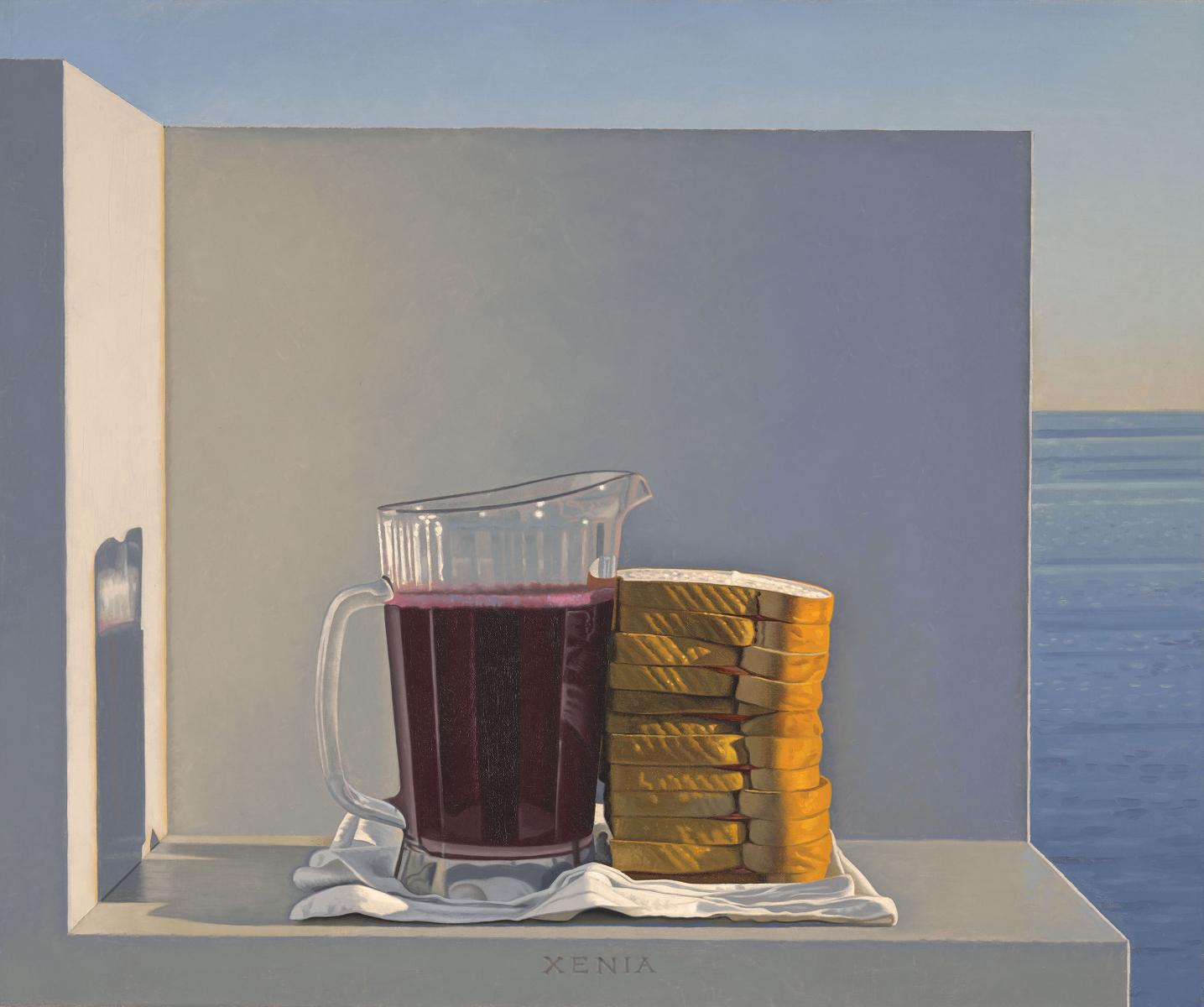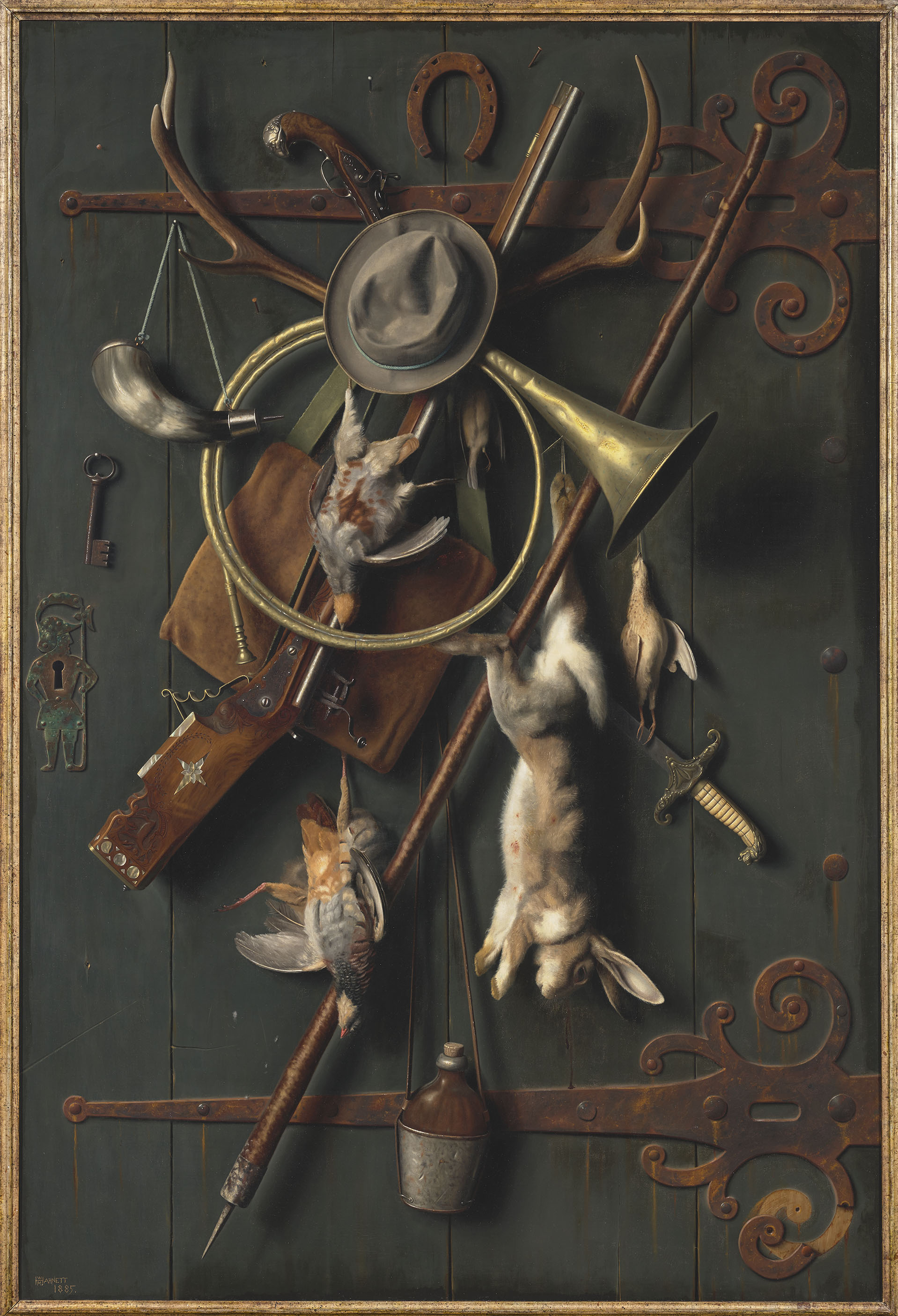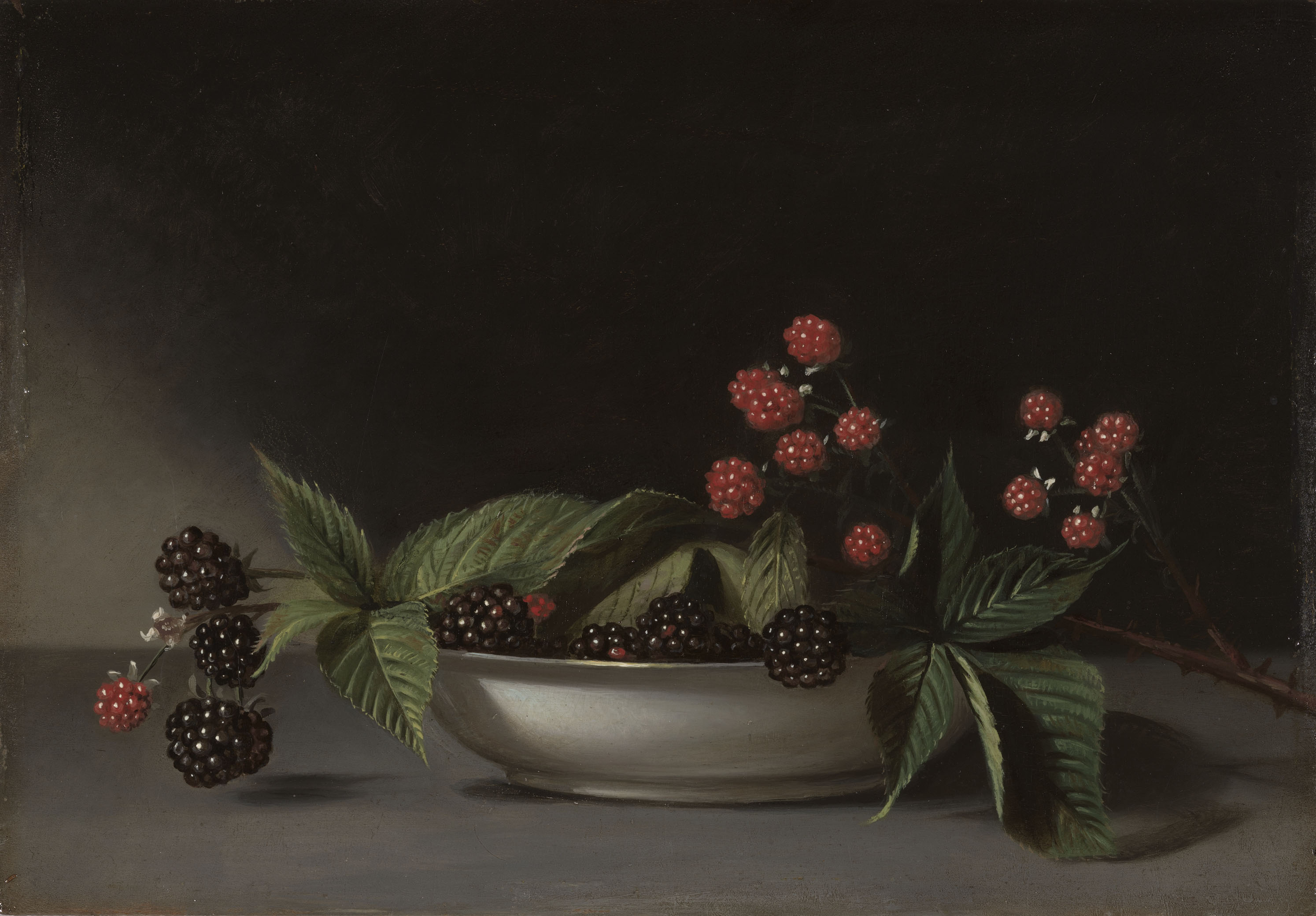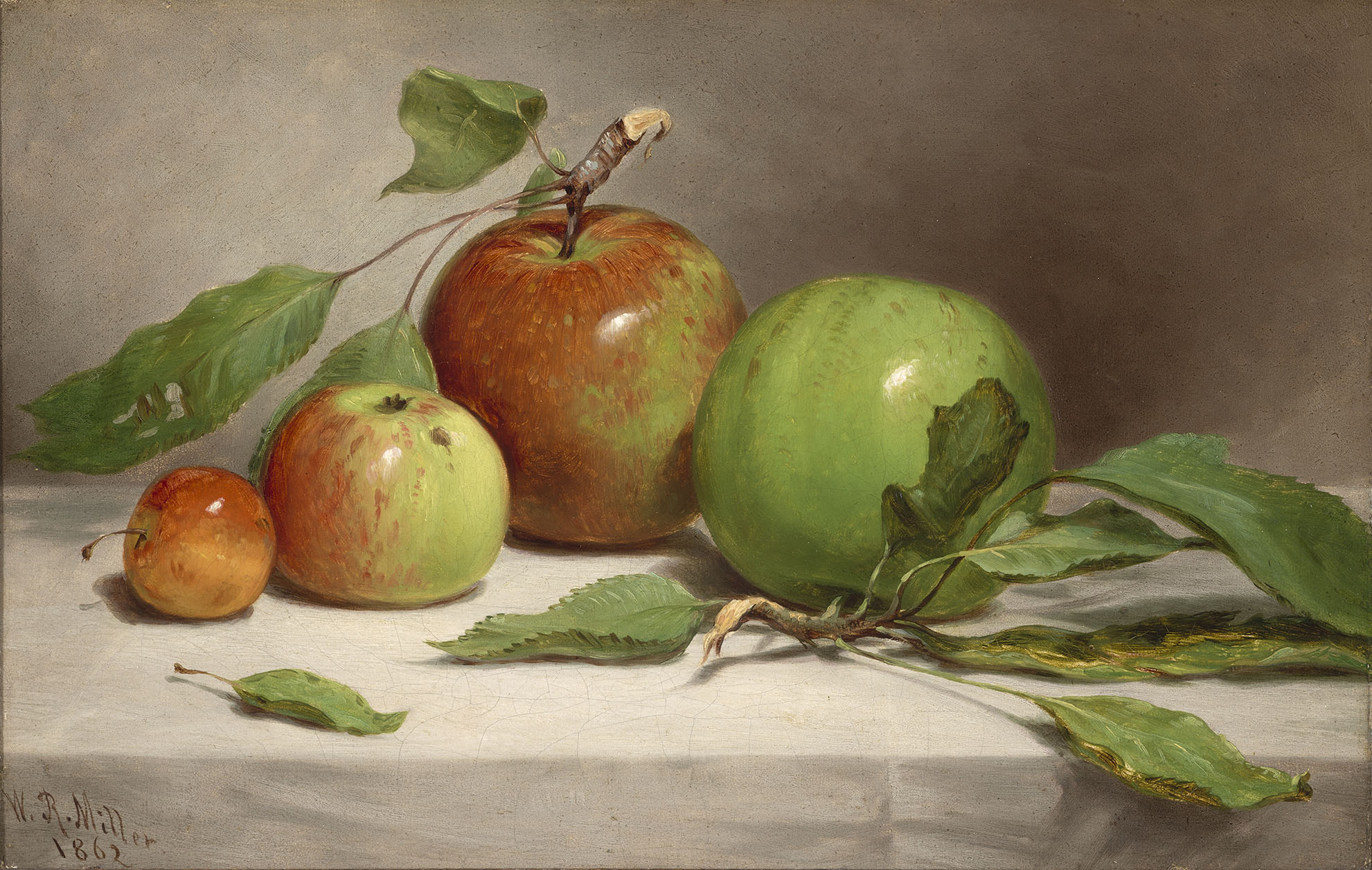Still Life with Snipe
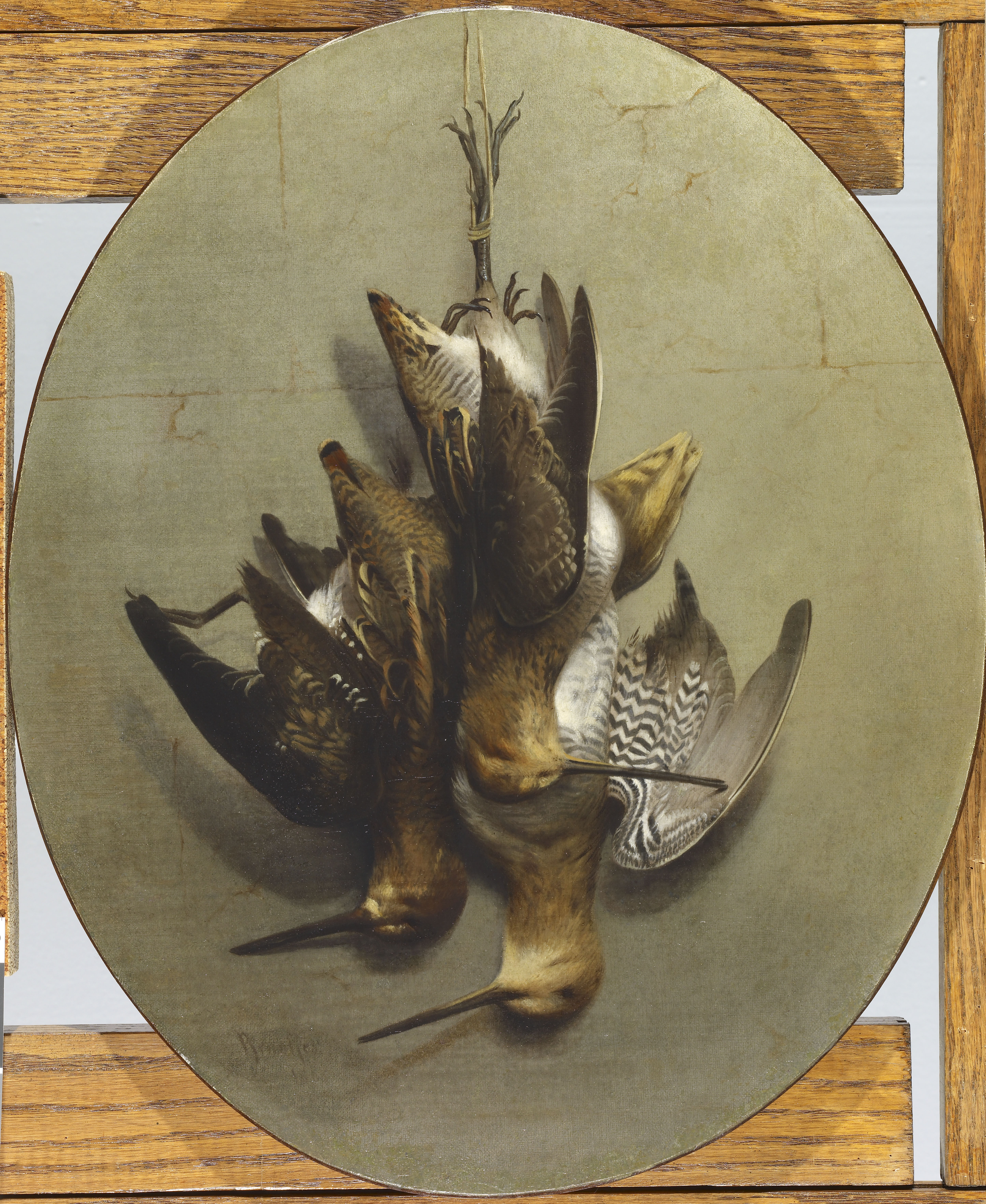
What natural artifact could you spend hours studying?
Brookes’s body of work mostly consists of the still lifes of game and fish for which he became well known and quite successful. The artist gave serious attention and rendered with painstaking skill the features of his captured animals. In this work, the small variations of color in the underside of the birds’ wings are particularly delicate, and the formality of the composition, with its classical oval backboard, gives the subject a timeless quality.
